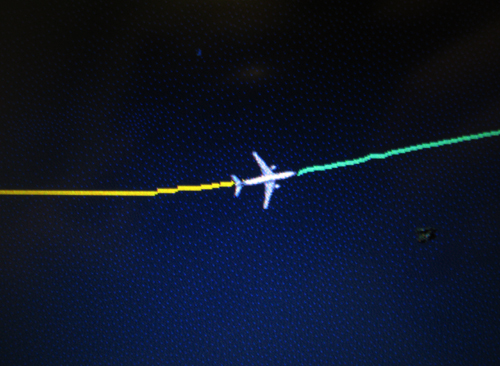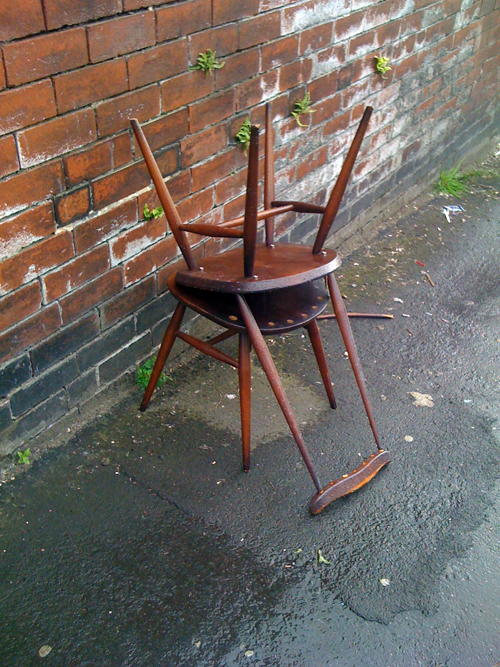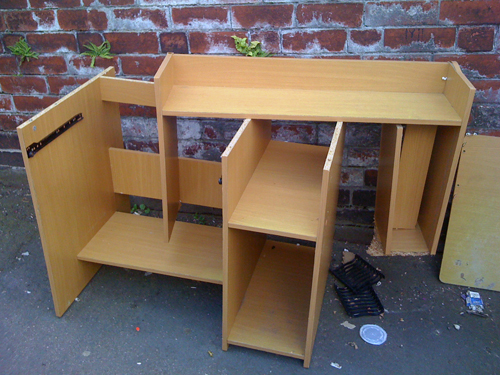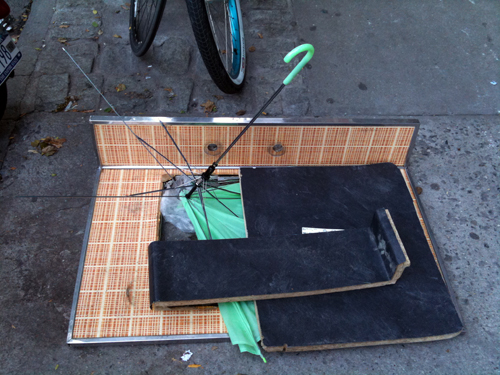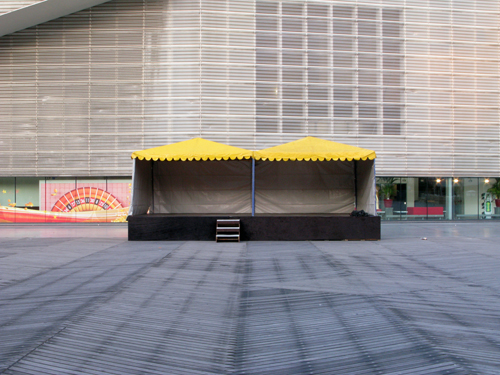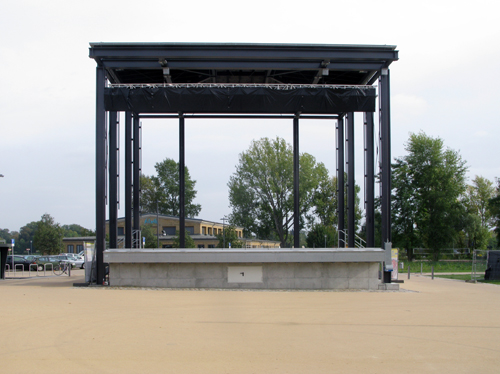Broken World reviews
Reviews of The Broken World are starting to appear. The best so far is from Stuart Kelly writing in Scotland on Sunday:
“..an exhilarating and poignant tale of love, loss and computer games that ought to make the leap from “cult classic” to “popular success”… The Broken World is ultimately a humane and heartfelt book, with a proper emotional core wrapped up in a giddying fantasia. It manages to be desperately sad and desperately funny at the same time. It is a book of big ideas, cunningly delivered through a slacker’s shrug.”
So-so from the TLS, but it’s not online. An interesting, positive one from Matt Thorn writing in the July edition of the Literary Review, also not online.
Great blog responses so far from Big Dumb Object, and from Marcus Gipps.
I’ve also been doing some online interviews about the book. Here you can see the one from Metro which is also something of a review/feature, and the one for Big Dumb Object.
*
There’s a small review from The Guardian, August 22nd 2009.
One Thing At A Time
My friend Tomoyuki in Tokyo mailed me after he’d been watching the monologue Sight is the Sense… which i made with the American actor Jim Fletcher.
The piece… reminded me of what Imre Kertész said in his Fateless about the linearity of the order of things that happen. He says the fact that things happened one by one during his Auschwitz experience saved him. He would have been destroyed if all the things happened at once. What if all the definitions in Sight is the Sense… came to me at once? Then it would be a very dangerous piece, but doesn’t the linearity of the monologue somehow save me at the same time?
Tomoyuki underlines the linearity of the piece (the text for which consists of many many many disconnected single sentences one after the other), and to the way that all performance in fact unfolds in this way over and through time, building and accumulating, but at the same time systematically forgetting and undoing itself. The lived event (performance in life) is always slipping away. Its accumulations (such as they might be in short-term memory, or in the build up marks/detritus in a space, or in their impact on a body) are inevitably only partial and incomplete traces of its present moments and their sequential impact. (Strange parallel process of both both building/accumulating and slipping/disappearing).
You can see the work live in Paris later this month, at Theatre de la Bastille who are also showing the more recent solo in pieces I made with the Japanese dancer Fumiyo Ikeda.
Invaded
A cruel boss, it was rumoured that he punished people who were late to meetings with him by making them eat their watches. Common were the complaints of the local doctors called to the bedside of men who were trying with some difficulty to pass the indigestible remains of a large Rolex or whose throats were ravaged by the fragments of a crushed diamond encrusted, four time-zone Seiko.
*
I've been thinking a lot, she says, then adds, well, i should be careful of the word. It's not so much that I have thoughts these days – I am invaded by them.
*
Out front of the gas station, as other cars come and go, a very large guy is inspecting the underside of the very very large jeep/four-wheel drive which he evidently drives, peering under it methodically as he walks around it, a baseball bat clutched ready in one very large hand.
No Cages
The city has no pens, cages or shelters in which it gathers stray or abandoned animals. Instead it pursues a policy of catching, vaccinating, neutering and tagging the many such creatures to be found there before then returning them to a life on the street. Poster campaigns from time to time remind the city’s inhabitants to feed or give water to these animals, specially as the summer temperatures rise. This now-established shadow population constantly performs a set of subtle but extraordinary demands and gestures in relation to the urban space. The streets are full of them – dogs with their own corners, shop doorways, park benches and traffic intersections, cats in the bushes, running along walls, sleeping on the boxes of books outside a second hand bookshop, or under the tables in a restaurant, or peering from rooftops here and there. In many cases these animals have particular sets of people providing sustenance for them in specific locations – impromptu homes with dishes for water and food, a scrap of clothing for a blanket even, to sleep on. And all this has a strange effect on the public space of the city, populating it with animals that lack either the status or the indignity of ‘ownership’, existing as they do in a physical and social space that’s at the same time highly public and yet which becomes, by sheer dint of their custom, domestic. The ubiquitous presence of these animals also thrusts a strange collective responsibility on the city’s inhabitants, tying them in a collaborative project of nurturing whose rules and roles are uncertain. At the very least, the population are required to negotiate (with care, indifference or cruelty) the spatial needs of these animals as they lie on streetcorners, sit beneath restaurant tables or hang out beside playgrounds, scavenging what they can. All cities have wildlife of course.. a layer of the natural in the urban, but these animals are sanctioned semi-citizens – loping their way through the crowds, or laying with apparent indifference at the busiest of markets or shopping streets.
*
Small news. I’m going to be writing a fortnightly column/diary for Guardian on-line imaginatively titled ‘Tim Etchells on performance’. I hope that writing on or around performance there will leave me free to meander here. See above.
Tattoos
She and her boyfriend both got tattoos. Egyptian, she thinks that symbol is, but it’s not a hieroglyph. What does it mean? Truth she says. We liked truth and we liked Heaven. Now I think of it it, she adds, leaning in to speak from the front passenger seat of the taxi, it seems strange we chose Truth over Heaven. I ask are they still together? No, it was some years ago. He's in XXX now, she says – another country. (And I think later – the tattoos, two truths that were close together and are now far apart).
Istanbul Readymade
For Istanbul Bienale this year my project will take place beside the sunlit and heavily jammed highway leading to Ataturk airport. There, in the shade of a large traffic sign, seated as some other men might seat themselves in the shade of a tree, five men will crouch to eat their lunch, fingers passing food on the grass beneath the sign, their bodies at the same time shaded, framed and contained by the lopsided rectangle of its shadow.
Reality Show
We have started to get some doubts about the reality show we are in. First – in many years there have been no evictions. Second – the tasks they set are so different than in the other shows. Some of the theatre projects I am involved in (for example) – many of the productions take six months to complete. Any reality show I ever saw the tasks don't take more than a week, mostly lasting a day or so. Participants might be asked to stage a pantomime in a garden, or to learn and perform comical monologues… but the kind of avant garde stuff I'm required to do most of the time is another thing altogether. The job my brother does is so completely different to mine that it's hard to see how we are being judged side by side. I am not complaining that it's not fair – just saying that it makes no sense. At the very least we are starting to think that the show we are in has a very different structure to say Big Brother or I Am A Celebrity Get Me Out of Here (or Top Model or Beauty & The Beast) and makes quite different demands on our time and our skills. Third – no diary room or confession cam. In fact the house has no camera installations at all that we are aware of, tho we assume of course that there are video recording systems concealed somewhere/somehow – otherwise the whole of what we're doing here (and all the great material we are generating day in day out) would be wasted, no? Fourth. No shouting or applause from outside the house at night (apart from the drunks etc). In fact there are so few restrictions on our movements that the whole concept of the shows' location – supposedly or at least conventionally 'a house' – is a bit nebulous. Some people reckon it's hard to say that X or Y are still 'competing' if they go on holiday to France for several weeks any time they feel like it? Or perhaps their alleged holiday is a ruse, stunt or invention of the production company running the show, a device designed to put pressure on those of us who remain? But who remains and why in any case? The mechanisms lack any kind of transparency at our end. Perhaps the viewers get more info than we do. Similar questions have been raised about the economic downturn and the so-called swine flu rumoured to be sweeping the city outside – none of us really feels confident that these events have much integrity, although the scale of them (and the potential complexity of simulating them), as well as their as-yet-entirely nebulous impact on daily life in the 'house' make them at least questionable (and surely dis-economic) as effective interventions. Finally we're drawn to discuss the severity of some of the tasks or challenges. In 2004 I underwent two bouts of serious cardiac surgery and long periods in the hospital, as well as long times recovering at home in the house. As 'challenges' for a contestant in a reality show these seem dangerous, exaggerated and even irresponsible. Some contestants I met in the hospital later died as a result of their ordeal. Last night Z wrote a long letter to the producers of the show and has posted it in several of the windows since we lack any established mode of contact with them, demanding both an explanation of the rules and a complete reform and reinvigoration of the structure. As yet we have heard nothing.
